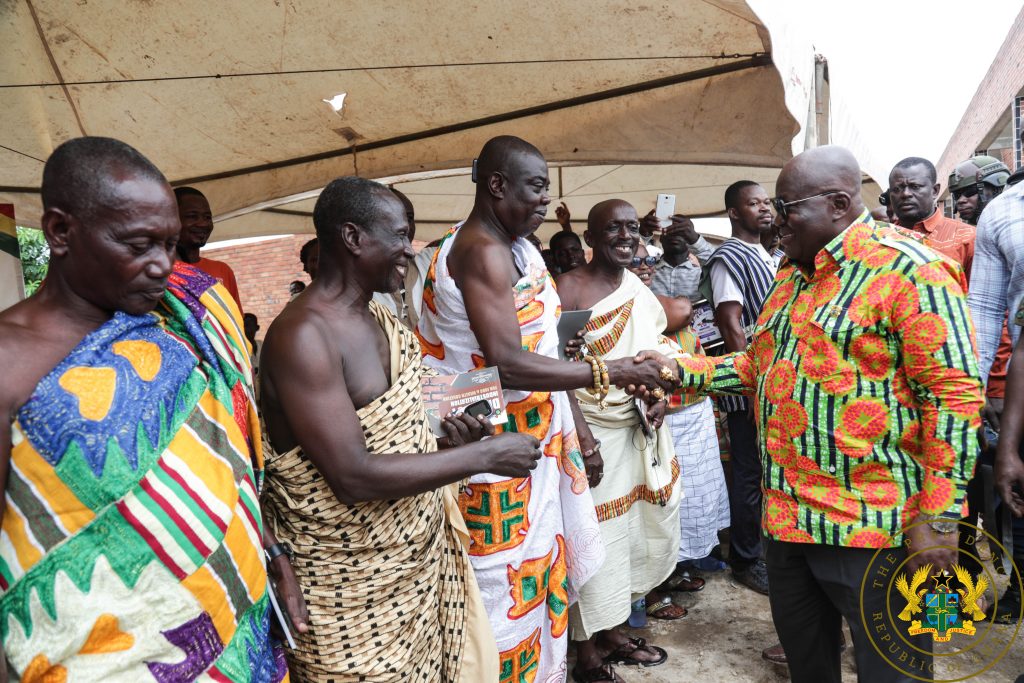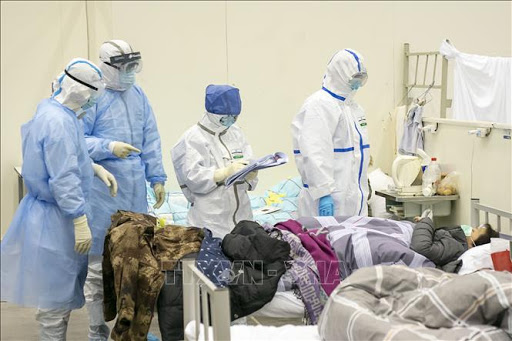Addressing COVID-19 from the grassroots – Gap and remedies
The dawn of COVID-19 in Ghana was not an overnight phenomenon. From far away from China, the wind of distress sounded in our ears and haunted our eyes through the power of radio, TV, and the various new media accessible in the palm of our hands. It was sad, incredible, far away; but slowly but surely, our vocabulary began to change. With the first case shivers came quarantine, self-isolation, lockdown; and then the visuals of the crown-like enlarged microscopic images of the virus.
Ghana as a state studied and acted when needed. The government did the needful, introducing the necessary legislation and setting up funds by mobilising resources to fight COVID-19. Preventive messages have been embraced by all fronts: political, social, cultural, religious and economics.
The fight by the government and the state is highly praiseworthy, but it can be strengthened beginning with some assessment. Are there missing actors and channels?
- Are there missing actors or channels?
- Are there responsibilities yet to be assigned, and to whom?
- Do communication gaps exist?
- What to expect in the course of the fight?
- State power and use of state facilities
One can attest to the fact that the mode of overcoming the pandemic globally is what Ghana is also doing. However, there are few things that can be added as necessary ingredients to fill some gaps.
- The seeming absence of sociologists
We think that the strong involvement of Psychologists is great, especially in the beginning where we were at the imported case level of the fight. When we hit the community-spread phase, we were fully expectant that Sociologists would be brought on board. This is because at this point, we are not dealing with just individuals and their psyche, but also the community where individuals live. At this point, we are dealing with very sensitive and intangible constructs like relationships between the individual and his community, community leadership structures, belief systems, the community’s responsibility towards the individual, etc.
A few days ago, we watched with disbelief as elementary issues such as community entry protocols appeared to have been flouted, seemingly out of ignorance in the case of “untraceable” COVID-19 positive persons at Old Fadama who were eluding the contact tracing team. We need all the rural, urban, and industrial sociology expertise we can find; and in fact, all sociologists and allied professionals such as Social workers, Community Knowledge Persons, and Social Marketing Communicators on board our battleship in this fight.
Two Old Fadama residents on the run after testing positive for coronavirus
An added benefit of involving sociologists is that when all this is over, such experts can have this experience could for the core of a field of study or a classic case study as an input into academics.
2. Communication gaps on various fronts
The current message being drummed home is fine but missing some elements
-
-
- The HOW (mode of transmission) of getting infected is gradually getting missing in our messages; the thrust of messages now is just washing of hands and social distancing. The call for social distancing does not make sense if the mode of transmission is not very clear.
- Closely associated with the aforementioned is the “do not touch your face” message. This is one of the measures when we had only 1 or 2 cases, and even that was the initiative of some radio show hosts. This aspect is also largely missing, especially in messages by corporate sponsors, which are usually very catchy for TV viewers – especially children.
-
Middle-class-centered messaging – including the ones in local languages. Let us not make the mistake that local language usage equals lower class. This probably was the case a couple decades ago, but is no longer the case. It may be close, but not wholly true. However, this appears to be playing out in our targeting. We are losing the vast majority of our folk who do not listen to radio themselves. They listen to those who pass on messages of all kinds on local language radio to them. Our Kayayei sisters, hawkers, and our “trock” brothers to mention a few, typically would not have the time to listen to the radio during their working day. Many of their phones, are necessarily purely functional and necessarily basic. These persons need the information van communication mode, and messages should resonate with them and be practical for their housing and work environment and circumstances. They must not be mere interpretations of the standard messages crafted differently from the standard ones we hear.

The Carrier of the Message – (rope in our Chiefs!)
Outside the few metropolitan areas, the typical Ghanaian takes a message heard from his traditional authority more seriously than a government official, or people who are perceived as extensions of the state – which is a very impersonal entity. Without over-generalizing this, suffice it to say that the words of a chief typically carries more weight for obvious reasons. The social repercussions of going against such stipulation or regulation, in a sense is more punitive. Even a whole family can bear the brunt of one member’s recalcitrance.

Addressing mis-conceptions
What are some of the misconceptions and myths around COVID-19?
- It is a disease of the wealthy
- Fishermen don’t get it; the salt is strong in us
- The government is using the samples for rituals
- God won’t let such a thing happen to us
- When you allow yourself to be put in isolation, you would be given injections indiscriminately with strange medicine…
Who is addressing these?
How will they be addressed now?
- Some standard operating procedures for the public knowledge
For example: What to expect if you (or a family member) are named as a contact
- What do the contact tracers do?
- What will they communicate to me over the phone?
- What does the contact tracing team look like?
It is imperative that some of these are demystified, and the public equipped with some basic information regarding what would gradually become common occurrence. Some of such information would put fear at bay, and have the ability to quickly correct mis-information and fear.
- Primary Healthcare Worker Sensitization
Given the structure of our health system, healthcare workers at the first port of call in community health facilities need some sensitization to be “professionally suspicious” of upper respiratory issues at this time. This includes CHPS, Licensed Chemical shops, Health Centres etc. Especially as PPEs are in short supply everywhere, this added vigilance would also help avoid contracting the virus unknowingly.
- What are the Forms of Isolation
What do these mean? And how can we disabuse the minds of our populace that
- Quarantine
- Isolation
- Self-isolation and relationship with home/ neighbourhoods
- …. And what do they do to people at isolation centres, anyway?
6. The Declaring an Isolation Facility as Such
The recent protests regarding residents’ reaction regarding the communication of facilities that are to be designated as isolation facilities is quite unfortunate. There is the need for clarification to the effect that it is the government through its agencies such as the Ghana Health Service, and/or the Ministry of Health, and not neighbours, who make this determination. How the communication thereof is handled is one for Sociologists and other such professionals to advise on. Let us take this approach, and we would most likely not see such protests again.
- Citizens’ Responsibility to the State
One very effective way without application of treatment substances to curtail or eliminate COVID-19 has been isolation of oneself from another by observing physical or social distancing. The way to break the transmission mode is by the state enforcing a lockdown. As much as we know this, the structure of our everyday life economics and personal need requirements have prevented us from doing this in the most effective form. This has necessitated the state to achieve it by mobilizing resources to deploy personnel to regulate its order.
It is sad to note that many individuals fully understand this but decisively flout the restriction order.
Could it be that we know more about our rights than our responsibilities? Clearly, this is one of the results of the measure of strength of our citizen education programs. We acknowledge the tireless efforts of both government and non-governmental agencies that have been involved in citizen education over the years. It is evident that with the right levels of resourcing much more would be done.
The optimism exists that we have done and are doing our best possible given our circumstances as individuals, groups, and as a nation. We believe that acting on some of these suggestions would enable us to gain more ground faster and more effectively in fighting the disease within our borders.
God bless our homeland Ghana and make our nation great and strong.
The authors are Social Safeguards Specialist and Social Marketing Specialist respectively,




Great contribution. Hope this advice is taken in action and not just a nice piece for reading.